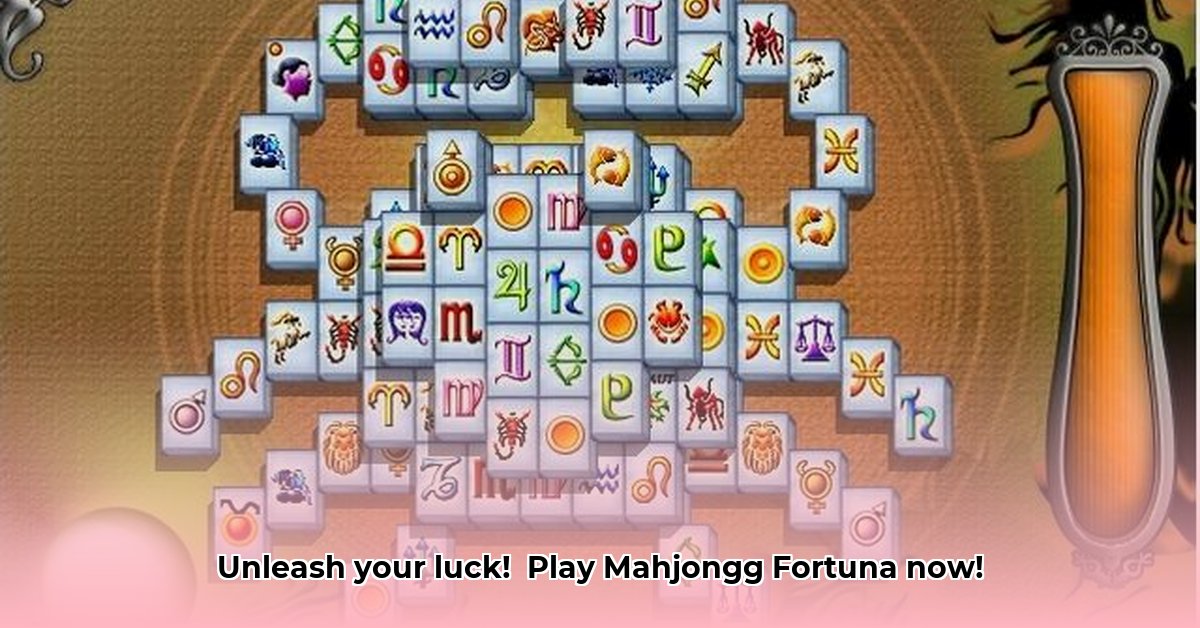
A Speedy Spin on a Classic
Eish, fellow makkers! Ready for a Mahjong game that'll leave you breathless? Forget those slow, relaxed tile-matching sessions; Mahjongg Fortuna throws a ticking clock into the mix, turning this classic pastime into a thrilling race against time. This review dives into the gameplay, compares it to the competition, and offers a few goeie wenke for both players and developers. Let’s get started!
Gameplay: Time's Ticking...
The core mechanics are simple enough, even for ouma and oupa: match pairs of tiles to clear the board. But the relentless ticking clock adds a serious skrik factor. Those tiles shimmer, almost daring you to match them faster. Each successful match is satisfying – that klik as the pairs disappear – and boosts your score. However, that clock... jeez, it’s relentless! The pressure forces strategic thinking, moving from casual clicking to calculated planning. It's a real spook! It's less about leisurely puzzling and more about a lightning-fast, adrenaline-pumping challenge. How many tiles can you clear before time runs out? This is the real question!
Competitive Analysis: Fortuna's Unique Selling Point
Many Mahjong games offer unlimited time, allowing for a more relaxed experience. Mahjongg Fortuna's time constraint, however, sets it apart. This isn't just a stylistic choice; it fundamentally alters the gameplay. It shifts the focus from methodical matching to quick, decisive moves. While some may find this exhilarating, others might find it frustrating. The horoscope theme adds a visual flourish, but its impact on gameplay is debatable. Does it add depth, or is it just gees, a pretty skin? Only time will tell, but the time pressure definitely creates a unique space in the market. Many games also offer an offline mode, a key feature for those lacking internet connectivity. Does Mahjong Fortuna offer this option?
User Experience: Smooth Sailing or a Rocky Road?
The user interface (UI) is generally intuitive and easy to navigate, even for casual gamers. The gameplay is easy to pick up, which is great. However, the aggressive monetization strategy, promoting in-app purchases for extra time and hints, might leave a sour taste in some players’ mouths. This could be a major obstacle to building a loyal player base. How often do these prompts appear? How much do these extras cost? Is it pay-to-win? That's something we need to investigate further. A balanced monetization strategy is crucial for a game's longevity. How will this affect long-term player engagement?
Actionable Insights: Level-Up Your Game
Here's some raad for GameHouse:
- Refine the Monetization: Make in-app purchases less intrusive. Players should feel rewarded, not pressured. A less aggressive approach could significantly improve player retention.
- Difficulty Curve: Carefully assess the difficulty progression. The current jump in difficulty could be too severe, especially for casual players. Is there a better balancing option?
- Community Engagement: Foster a community around the game. This could improve player loyalty and retention. How can GameHouse better connect with its players?
For casual gamers? Expect a fast-paced, thrilling experience. For market analysts? Keep an eye on player retention rates and the impact of monetization on player satisfaction. Will the time limit prove to be a sustainable hook, or ultimately drive players away?
The Verdict: A Quick Game, But Will It Last?
Mahjongg Fortuna offers a unique adrenaline-pumping spin to a classic game. The time-limited gameplay is undeniably engaging, but the aggressive monetization and potentially steep difficulty curve could prove to be obstacles. Is it a must-have? Maybe for those who enjoy a fast-paced challenge. Its long-term success depends on GameHouse's ability to address monetization concerns and enhance the overall player experience. For now, it gets a solid 3.5 out of 5 stars. Let's see what the future holds!